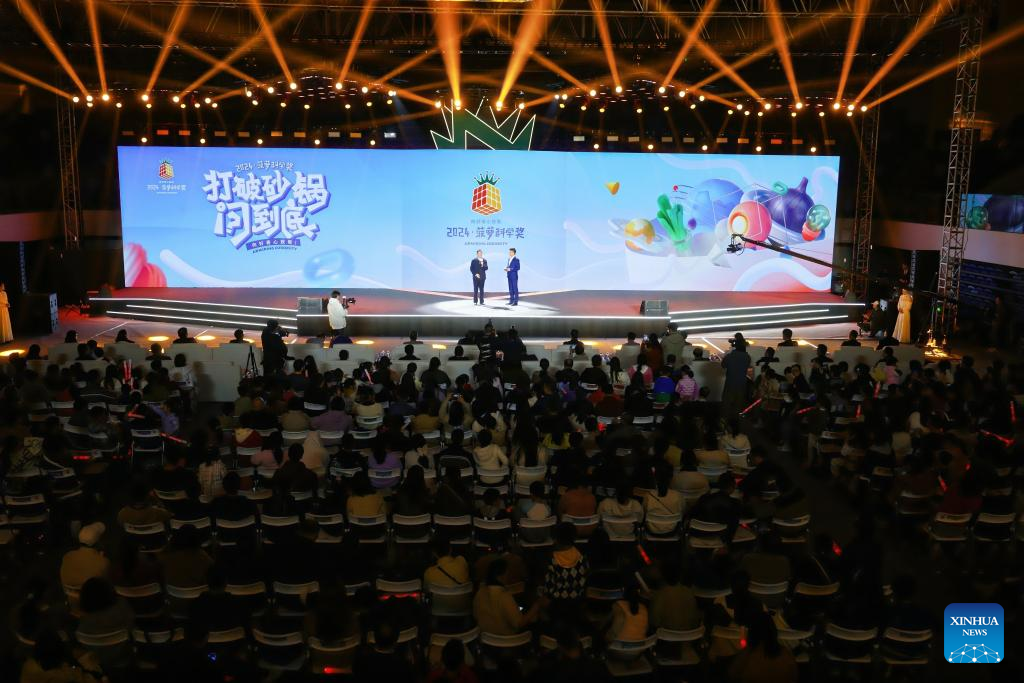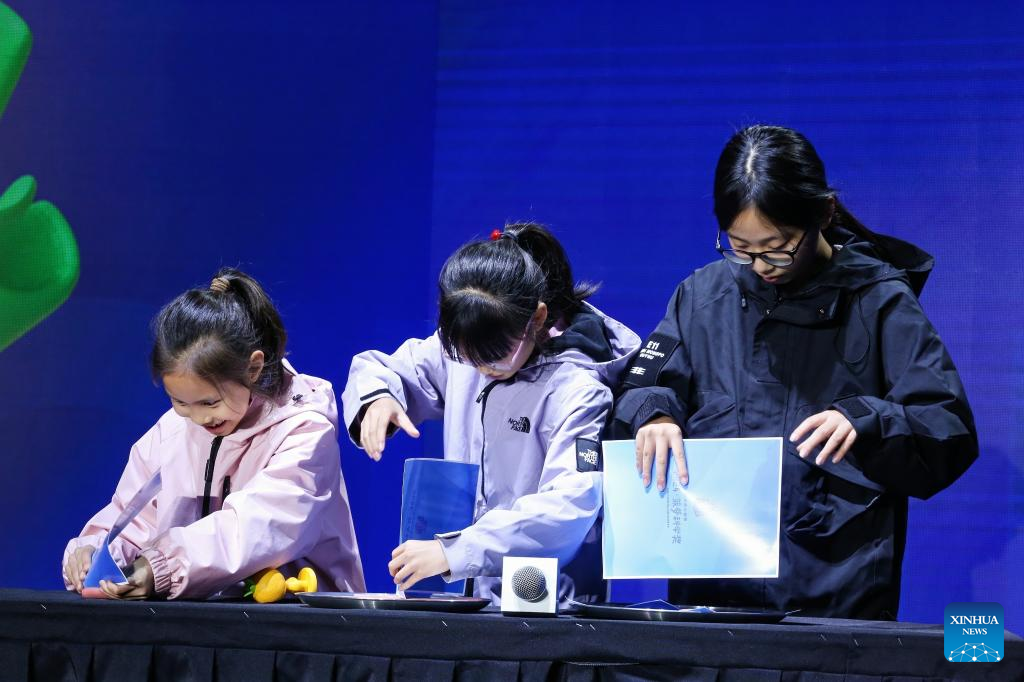
Ten innovative studies are honored at the annual Pineapple Science Award in Hangzhou, the capital of east China's Zhejiang Province, Nov. 23, 2024. (Xinhua)
HANGZHOU, Nov. 24 (Xinhua) -- Beer tastes better when chilled, oranges are always sold in red mesh bags, and human fetuses grimace at the flavor of kale but smile for carrots. The scientific explanations for these quirky phenomena can be found in 10 innovative studies honored at the annual Pineapple Science Award on Saturday in Hangzhou, the capital of east China's Zhejiang Province.
A watermelon forgotten in a freezer unexpectedly sparked a wave of inspiration for Professor Sun Licheng's team at Westlake University. Through a series of exploratory studies, the researchers mimicked the structure of the watermelon-rind membrane to develop high-performance artificial bio-inspired anion-exchange membranes with promising industrial applications.
This innovative scientific achievement, born from a seemingly mundane moment, earned the team the "moment of inspiration" award at the event.
The rind membrane refers to the thin, green outer layer of watermelon skin. When frozen and peeled, it is about 75 microns thick -- roughly the diameter of a human hair, said Dr. Liu Qinglu, a member of Sun's team. Liu added that testing revealed that it is an efficient ion-transport layer, a crucial element in creating nature-inspired electrochemical systems.
The discovery would not have been possible without the team's enduring curiosity regarding unexpected phenomena, said Liu.
Through ultrasound scans, researchers from Durham University in Britain found that human fetuses can taste and smell flavors in the womb. Interestingly, they can respond to the taste of carrots with facial expressions resembling smiles, while the taste of kale elicits grimaces of dislike, according to Beyza Ustun, a member of the research team.
Scientists believe the findings provide valuable insights into the development of taste and olfactory receptors, as well as related perceptions and memory formation in humans. The study on fetal taste preferences finally won the Pineapple Science Award in medicine.
This year's Pineapple Science Award recognized a range of intriguing studies that explored the scientific principles behind curious phenomena. Winners also included research on why the "baby smell" is so appealing, which type of paper cuts skin most easily, how spiders manipulate fireflies into emitting mating signals to lure prey, and the secret of how the unique smell of humans helps mosquitoes choose their next meal.
"It is particularly important to combine science with interest. Only with interest can one gain the motivation to seek answers and develop a spirit of truth-seeking and scientific inquiry," said Fu Xinhua, a professor with Huazhong Agricultural University.
Guided by the Zhejiang Association for Science and Technology and organized by the Zhejiang Science and Technology Museum, the Pineapple Science Award is a public science communication initiative. Launched in 2012, it takes place annually to celebrate imaginative scientific research and discoveries.
Each year, 10 winning projects are selected across disciplines such as psychology, physics and mathematics. Notably, all awarded studies are based on academic findings published in scientific journals. ■

Young audiences conduct scientific experiments at the annual Pineapple Science Award in Hangzhou, the capital of east China's Zhejiang Province, Nov. 23, 2024. (Xinhua)



